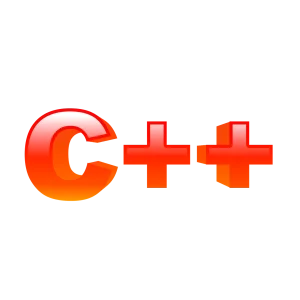Introduction:
C++ is a powerful and versatile programming language that has been instrumental in shaping the world of software development. With its efficiency, flexibility, and extensive library support, C++ empowers programmers to create high-performance applications across various domains. In this article, we will explore the key features and benefits of C++ that make it an indispensable tool for developers.
Advantages Of C++
C++ offers several advantages that make it a popular choice among programmers. Here are some key advantages of using C++:
1. Performance: C++ is known for its high performance and efficiency. It allows for low-level programming and direct access to hardware resources, enabling developers to write code that executes quickly and consumes fewer system resources. This advantage makes C++ suitable for computationally intensive tasks and applications that require real-time processing.
2. Flexibility: C++ is a versatile language that supports multiple programming paradigms, including procedural, object-oriented, and generic programming. This flexibility allows developers to choose the most appropriate approach for their projects and adapt their coding style based on specific requirements.
3. Extensive Library Support: C++ has a rich ecosystem of libraries, including the Standard Template Library (STL), which provides a collection of data structures and algorithms. These libraries simplify complex programming tasks and enable developers to leverage pre-existing solutions, saving time and effort in the development process.
4. Memory Management: C++ offers manual memory management, giving programmers control over memory allocation and deallocation. This allows for efficient memory usage and optimization, making C++ suitable for applications that require tight control over resource management.
5. Portability: C++ code can be compiled and executed on various platforms, making it a portable language. This cross-platform compatibility allows developers to write code once and deploy it on different operating systems and hardware architectures, saving time and effort in the development process.
6. Industry Usage: C++ is widely used in industries such as gaming, embedded systems, finance, and high-performance computing. Its popularity in these domains is due to its performance, low-level control, and ability to handle complex calculations and algorithms efficiently.
7. Community Support: C++ has a large and active community of developers who contribute to its growth and provide support through forums, online resources, and open-source projects. This community support makes it easier for developers to find solutions to problems, learn from others, and stay updated with the latest developments in the language.

Certainly! Here are some examples of what can be achieved with C++:
1. Game Development: C++ is widely used in the game development industry. Popular game engines like Unreal Engine and Unity rely heavily on C++ for their core systems and performance-critical components. With C++, developers can create visually stunning and highly interactive games that run smoothly across different platforms.
2. Operating Systems: C++ is the language of choice for developing operating systems. Major operating systems like Windows, macOS, and Linux have their core components written in C++. By utilizing C++’s low-level capabilities, developers can create efficient and reliable operating systems that handle hardware interactions, memory management, and system-level functionalities.
3. Embedded Systems: C++ is extensively used in embedded systems programming, where small, specialized computers control various devices and systems. From automotive electronics to industrial control systems, C++ enables developers to write code that interacts with hardware directly and efficiently manages system resources.
4. High-Performance Computing: C++ is favored in scientific and computational applications that require high-performance computing. It allows for efficient parallel processing and optimization, making it suitable for tasks like numerical simulations, data analysis, and machine learning algorithms.
5. Financial Applications: C++ is widely used in the financial industry for developing high-performance trading systems, risk management tools, and algorithmic trading platforms. Its ability to handle complex calculations and real-time data processing makes it ideal for demanding financial applications.
6. Graphics and Game Engines: C++ is used extensively in graphics programming, including computer graphics, image processing, and virtual reality development. Libraries like OpenGL and DirectX provide C++ interfaces for rendering graphics, creating visually appealing applications, and building interactive user interfaces.
7. Networking and Network Security: C++ is used in the development of networking protocols, network management software, and network security applications. Its low-level capabilities enable efficient communication and data manipulation, making it suitable for building scalable and secure network systems.
These are just a few examples of what can be achieved with C++. Its versatility and performance make it a valuable tool across various domains, from software development to system-level programming.
In conclusion, the advantages of C++ include its performance, flexibility, extensive library support, memory management capabilities, portability, industry usage, and strong community support. These factors make C++ a powerful and preferred language for a wide range of applications and contribute to its continued popularity among programmers.
